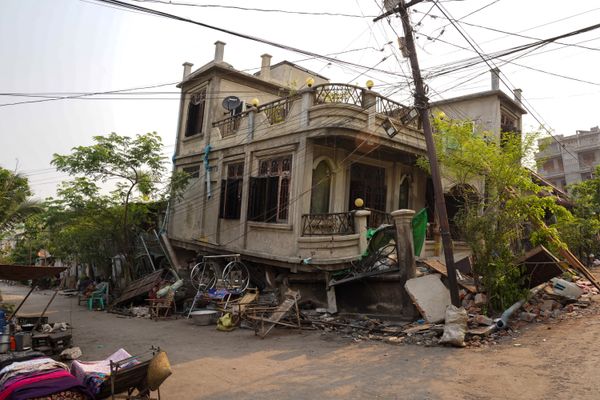GENEVA, April 4 — Myanmar's military is limiting critically needed humanitarian aid for earthquake victims in areas where it sees opposition to its rule, the United Nations (UN) human rights office said today.
The UN Office of the High Commissioner for Human Rights also said it was investigating 53 reported attacks by the junta against its opponents since the earthquake struck on Friday (March 28), including air strikes, of which 16 came after a ceasefire on Wednesday (April 2).
The office was made aware of a further eight attacks today, which it was looking into.
A spokesperson for Myanmar's ruling junta did not respond to calls from Reuters seeking comment.
The humanitarian situation in earthquake areas, especially those out of the military's control, was catastrophic, UN rights office spokesperson Ravina Shamdasani told the press in Geneva.
The 7.7 magnitude quake, one of the strongest to hit Myanmar in a century, jolted areas home to 28 million people, toppling buildings, flattening communities and leaving many without food, water and shelter. The junta says the death toll has risen to over 3,100.
"Limitations of aid is part of a strategy to prevent aid getting to the populations it sees as not supporting its seizure of power back in 2021," said OHCHR's Myanmar team head James Rodehaver, speaking via video link from Bangkok, Thailand.
He said the need for aid was particularly urgent in Myanmar's Sagaing region, and time was working against humanitarian agencies to help those in need.
"Air strikes are alarming, shocking and need to stop straight away — the focus needs to be on humanitarian recovery," Shamdasani said.
Late on Wednesday, the government on state-run MRTV announced a 20-day unilateral ceasefire effective immediately to support post-quake rehabilitation but warned it would "respond accordingly" if rebels launched attacks.
Millions of people have been affected by Myanmar's widening civil war, triggered by the coup that ousted the government of Nobel Peace laureate Aung San Suu Kyi.
It has decimated the mainly agrarian economy, driven over 3.5 million people from their homes and crippled essential services such as healthcare.
— Reuters




